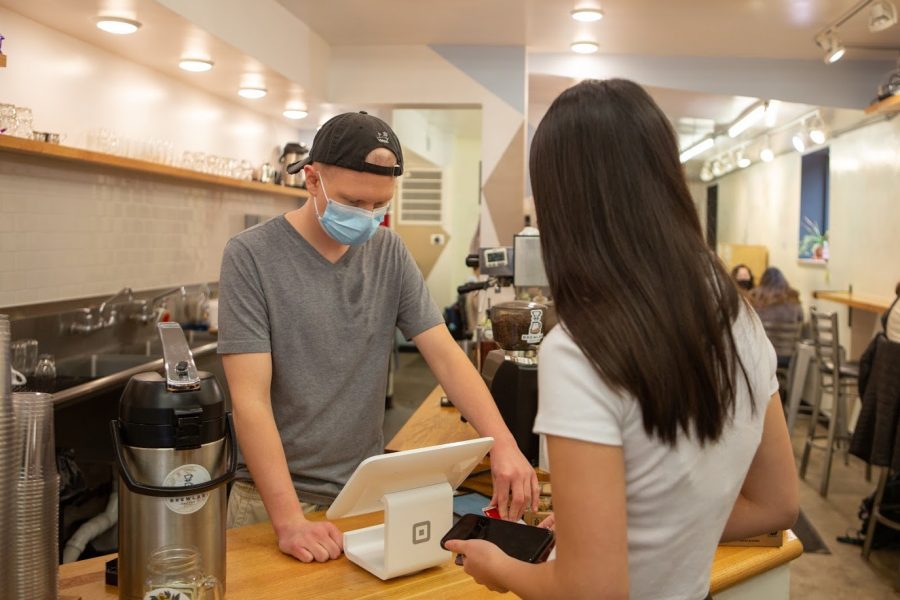Campustown businesses see slow activity to start semester
A Brewlab employee checks out a customer on Oct. 20. Small businesses, like Brewlab, have seen slow activity to start the semester.
February 8, 2021
Nearly one year after COVID-19 spread to the University community, businesses in the area continue to grapple between the momentous health risks of infection and the economic cost of being closed.
With changing health regulations, businesses have oscillated in their level of in-person availability in response to rising or declining community infection.
For many restaurants and cafes around Campustown, business continues to be slow.
“Even with indoor seating back, we definitely don’t have quite as many customers as before,” said Connie, an employee at Caffe Paradiso.
Zen Thai, a restaurant on Green Street that closed for several months due to the pandemic, has struggled to gain sufficient customers.
Get The Daily Illini in your inbox!
“It’s been very slow because of the COVID situation and not many people walking around Campustown,” said Ploy, an employee at Zen Thai. “It’s even slower than last year.”
Many businesses in the area have shortened their hours and seen reduced demand. Students coming back for the year had a negligible effect and more so this semester.
“We definitely see less traffic for sure, and even less this semester,” said Tim, an employee at Brewlab.
When COVID-19 infections rose to record highs last summer, indoor dining was banned and businesses struggled to generate activity. They were lifted once cases began to subside in late summer, but put in place again when infections rose to even higher highs last fall.
“Indoor seating was closed for the longest time,” Connie said. “We had to reduce hours a lot more than usual, especially during the summer. In the fall, indoor seating got closed [again] which we took a big hit from.”
Caffe Paradiso started doing takeout but a big part of coming to a cafe was the indoor experience, according to Connie, which customers were not able to get for a good chunk of last year.
For students looking to help, employees and shop owner’s advice is simple: come in and purchase whatever you can.
“Just coming in and ordering stuff from us would probably be the most we can ask for,” Connie said.
Spending more money on takeout and indoor dining would be beneficial too, according to Ploy. Tipping generously, being kind and open-minded to staff is also helpful.
Business setbacks from COVID-19 have been more pronounced on Black-owned and minority businesses.
Mariah Madison, founder of Buy Black Chambana, leads an organization that works with Black-owned businesses heavily impacted by the pandemic. Students can go on the directory page of Buy Black Chambana, see what businesses they’re interested in and then proactively purchase products that suit their needs, according to Madison.
“If they’re looking for takeout options, we have many options, and we also try to share information about what’s going on and how you can get involved,” Madison said.







